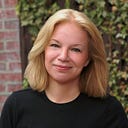Member-only story
ASK A WRITING COACH
What’s The Difference Between The Theme And Subject Of Your Writing?
You need to be able to describe both to an editor, reader, or interviewer who asks you to do it

This is the first in a series of stories about basic writing topics (“What’s the difference between your theme and your topic?”) as well as more advanced publishing questions (“What’s the best way to find a literary agent?”). You can read about my credentials here.
Did you play hooky on the day your middle-school English teacher explained the difference between the “theme” and the “subject” (or “topic”) of a work of fiction or nonfiction? It could hurt you with editors who expect you to have mastered those basic terms.
Fortunately, neither word is hard to understand. Robert McKee explains the difference between the two terms briefly and accurately in his modern classic guide to screenwriting Story: Substance, Structure, Style, and the Principles of Screenwriting (HarperCollins, 1997):
“Theme has become a rather vague term in the writer’s vocabulary. ‘Poverty,’ ‘war,’ and ‘love,’ for example, are not themes; they relate to setting or genre. A true theme is not a word but a sentence — one clear sentence that expresses a story’s irreducible meaning.’’
In other words, the subject of a book, story, or essay is what it’s “about.” The theme is what it says about its subject, or its point of view on it.
Two examples of theme vs. subject
Here are the subject and theme of a famous American novel:
The subject of Uncle Tom’s Cabin is slavery.
The theme of Uncle Tom’s Cabin is: Slavery is wrong in all its forms.
And here are the subject and theme of a history of the invasion of France in World War II, Antony Beevor’s D-Day: The Battle for Normandy (which I’ll review on June 6):
Beevor’s subject is the D-Day invasion.
Beevor’s theme is: France was liberated at the expense of Normandy.
